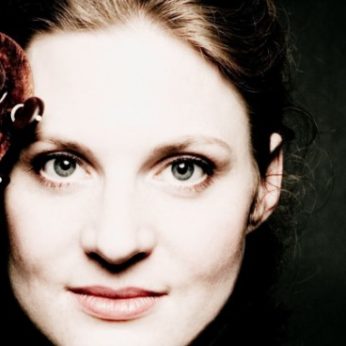Composer: Ottorino Respighi (b. 1879 - d. 1936)
Performance date: 06/07/2012
Venue: Bantry Library
Composition Year: 1917
Duration: 00:24:43
Recording Engineer: Anton Timoney, RTÉ lyric fm
Instrumentation: 2vn, va, vc, pf
Instrumentation Category:Duo
Artists:
Tanja Becker-Bender -
[violin]
Péter Nagy -
[piano]

In 1913 Respighi settled in Rome taking up the position of Professor of Composition at the Liceo Musicale di S Cecilia. He displayed a natural flair in the classroom and his lessons in advanced compositional technique were imbued with his passion for analysing, arranging and orchestrating themes from the past. It was here in his classes of 1915 that he was to meet the young composer and singer Elsa Olivieri Sangiacomoin. Their relationship blossomed into a deep friendship based on mutual creativity and they married in 1919. We can only speculate as to whether the excited intimacy of the violin sonata draws on the emotional charge of their relationship through this period.
In Novembre 1917 Toscanini had agreed to conduct the première of The Fountains of Rome, an event that never transpired as the conductor concluded his concert series at the Augusteo early after heckling during a performance of Wagner. Respighis’s response was one of quiet devastation; My health is so-so, I have my ups and downs. Complete recovery seems impossible. Black, melancholy moods and a horrible feeling of solitude. The performance of The Fountains with Toscanini has come to nothing. Despite this significant setback to Respighi’s public profile, he pressed ahead with the first movement of his violin sonata.
The March première of Fountains under Guarnieri was met with a stony reception and loud hissing from the audience. The press were equally unforgiving and it was not until February 1918 that Toscanini included the work in his Milan concerts. It was met with resounding success and an offer of publication from Ricordi. It was during this period of elation that Respighi found the creative powers to finish the violin sonata.
The first movement is unabashedly romantic in tone, its expression markings overtly sentimental, the oft repeated dolce expressivo and con passione, the lusingando signalling a caressing and alluring style. The opening theme is sweet and buoyant, its rapid Siciliana character leading us through subtly shifting time signatures. The expansion through the agitato section is intoxicatingly restless, yet is concluded by a sweet meandering melody, exploring the violin’s upper register before sinking gently into the rousing concluding recapitulation of the main theme.
The opening theme of the Andante espressivo is one of tranquil poise, leading to the unsettled jubilation of the second appassionato theme and ensuing turbulent acceleration of tempo. A miniature cadenza follows and its ebb heralds the reinstatement of the first theme.
In the final Passacaglia Respighi’s academic inclinations towards early music and love of stylistic pastiche are evident. From the opening bar, through the resulting theme and variations we can clearly hear his tendency to sit late romantic sensibilities atop the compositional techniques of the baroque. We are guided through a bewildering array of metrical modulations, the traditional monolithic character of the passacaglia’s ground-bass rent asunder by frenzied and sudden changes in sentiment.
Copyright © 2025 West Cork Music. All rights reserved.
Designed and developed by Matrix Internet